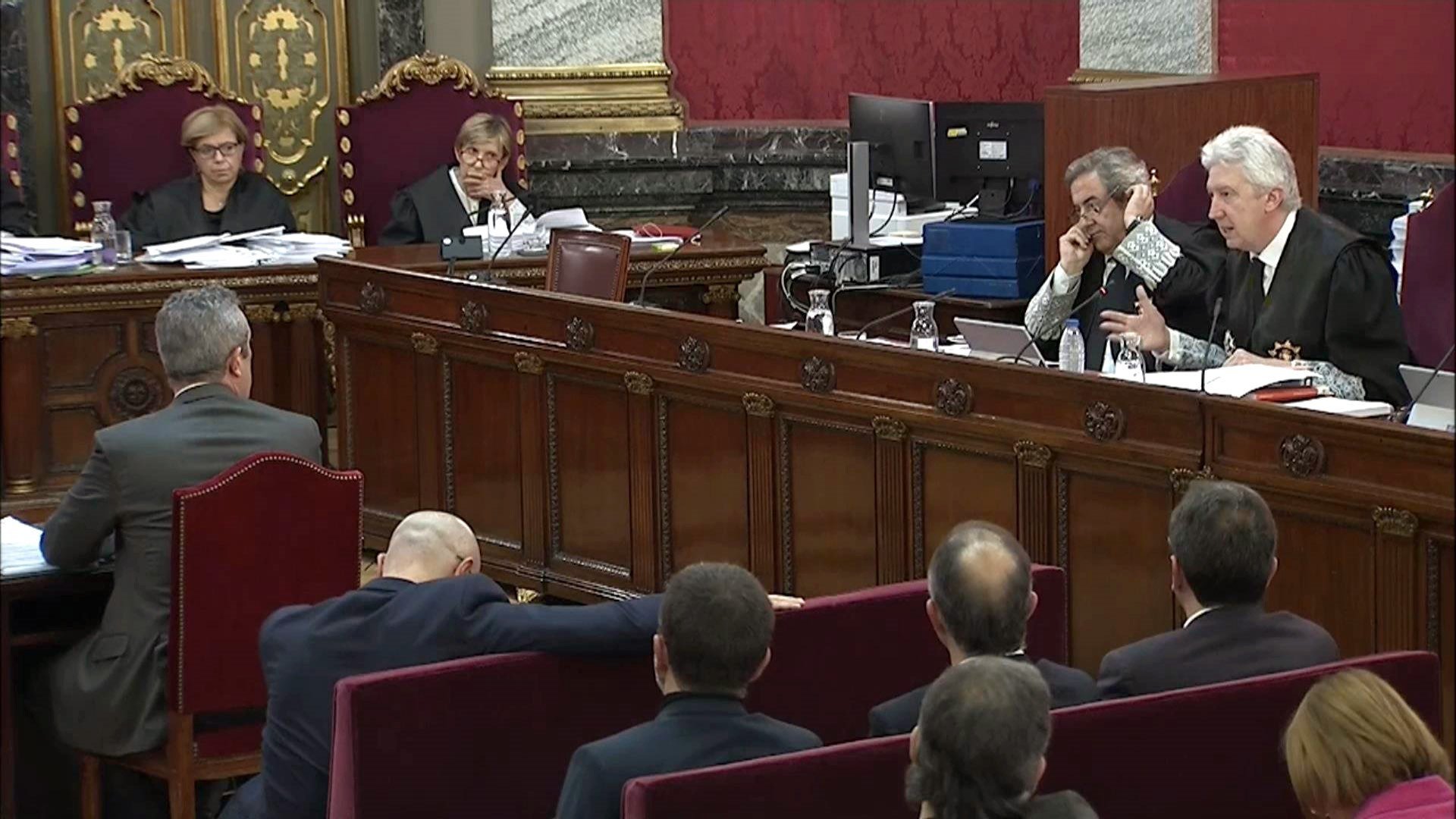Ahead of the third week of the Catalan independence trial, the international observers of the specially-formed International Trial Watch (ITW) have published a new progress report. In it, among other things, they say that public prosecutors "have fallen into inaccuracy and questions which could be leading or tricks".
The observers single out the questioning of Josep Rull, "attributing nonexistent expressions to a document", and Dolors Bassa, who was asked about an email which wasn't present in prosecutors' filings. They also describe it as "worrying" that case documents haven't been translated to Spanish, which led to confusion, like a tweet Bassa wrote which prosecutors misinterpreted.
The report is based on last week's hearings. Attending for ITW were John Philpot, a pioneer in international criminal law, Paul Newman, a human rights expect, Bill Bowring, a member of the European Association of Lawyers for Democracy & World Human Rights, and Joaquín Urias, a former Constitutional Court lawyer.
Other complaints
Once again, the observers have called for the court to set aside seating for them, instead of making them go through the same process as any member of the public who wants to attend. They complain the system makes their attendance more difficult, as it requires them to queue up hours in advance every day and hand over their electronic devices.
They also highlight the court's timetable. One day last week, for example, the prisoners were at the court "from approximately 8am to 10:30pm". This meant, they say, "they arrived in prison around midnight, when there was no longer a warm dinner [available], nor could they shower". They then had to wake up at 6am to return to court, some of them to testify for hours.
As for the questions from the public prosecutors and the state's solicitor to Jordi Sánchez, they say they were "especially worrying" when it comes to basic rights, like the right to assembly.
They do praise two things however: that the defendants can sit with their counsel after testifying and that the judges didn't limit the time of their questioning.

